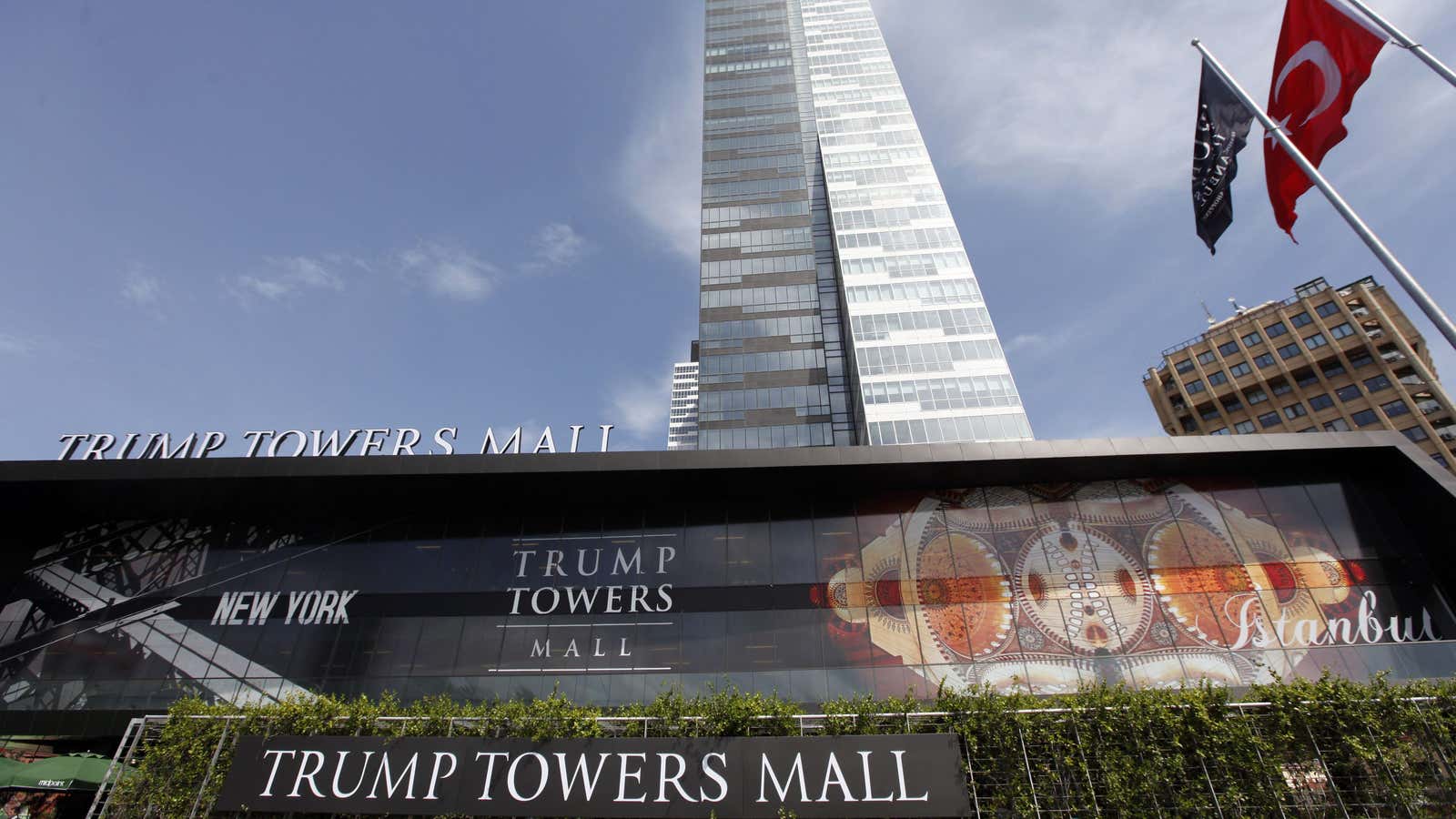Donald Trump’s election has been novel in lots of ways. One unexpected consequence has been the resurfacing of an obscure passage of the US Constitution. The Emoluments Clause of the constitution bars office holders from receiving economic benefits from foreign governments, and now there’s a debate over whether the president-elect’s wide-ranging business dealings abroad violate that rule.
If you’ve never heard the term emolument, it’s because it has rarely cropped up in the context of the US presidency in recent memory. Oval Office occupants in past decades have tried hard to avoid conflicts of interests. But Trump critics say he could use his presidential power to extract better deals from foreign officials for his many projects abroad.
The word comes from the Latin emolore, or grind out, and may have originally been used to refer to the payment made to a miller for grinding grain, according to the Online Etymology Dictionary. Its noun form, emolumentum, later evolved to the more general “profit” or “gain,” according to Merriam-Webster. The first known record of “emolument” in the English language is a 1480 document recording all the expenses of the realm of King Edward IV, including 40 shillings to Sir Thomas Williams Person of the Parish “in recompense of certain offerings, oblations, and emoluments,” says Merriam-Webster’s entry for the word.
Three centuries later, the US’s founding fathers had a different position on emoluments for government officials: they were firmly against them. One of their concerns was the threat of foreign monarchs using financial means to exert influence over American officials. That kind of corruption was seen as a weakness of the republican form of government. Leaders elected by their fellow citizens, wrote Alexander Hamilton in the Federalist Papers, could be tempted with compensations that “to any but minds animated and guided by superior virtue, may appear to exceed the proportion of interest they have in the common stock, and to overbalance the obligations of duty.”
That fear wasn’t without reason. That sort of thing happened in Europe, and it wasn’t unusual for European monarchs to gift expensive presents to American diplomats, including diamond encrusted portraits, explains Robert Delahunty, a professor at University of St. Thomas Law School, in an article published by The Heritage Foundation. The Emoluments Clause was designed to shield the US from such overtures and their implications.
The term emolument also appears in another section of the constitution related to the president’s compensation:
The President shall, at stated Times, receive for his Services, a Compensation, which shall neither be increased nor diminished during the Period for which he shall have been elected, and he shall not receive within that Period any other Emolument from the United States, or any of them.
Judges and government lawyers have had to grapple with the constitutional concept of emolument on a few occasions in the ensuing years. In one case, the government had seized former president Richard Nixon’s presidential papers, and was arguing that any compensation he received for them constituted an emolument, wrote Delahunty in another Heritage Foundation text. The court rejected that argument.
The emolument question came up again more recently, in 2009, after president Barack Obama was awarded the Nobel Peace Prize. Obama asked the US Department of Justice whether he could accept the $1.4 million that came with it. Acting assistant attorney general David Barron said yes because the Nobel Committee is independent from the Norwegian government and the prize money came from private sources.
Given his extended business interests abroad, president Trump will no doubt provide legal minds plenty of opportunity to study the meaning of emolument in the next four years.
